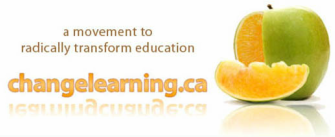This article by John Abbott and Terence Ryan appeared in the Spring, 1999 issue of Education Canada.
|
If young people are to be equipped effectively to meet the challenges of the 21st century it is surely prudent to seek out the very best understandings from current scientific research into the nature of how humans learn before considering further reform of the current system.
This article by John Abbott and Terence Ryan appeared in the Spring, 1999 issue of Education Canada.
1 Comment
It was only in 1991 that Dr. Jay Giedd started the first long-term, longitudinal study of the changes going on in the adolescent brain by using sequential functional MRI scans of some eighteen hundred teenagers over a number of years.
Read more Human babies are born with incredibly premature brains – apparently the result of an evolutionary compromise.
Read more If young people are to be equipped effectively to meet the challenges of the 21st century it is surely prudent to seek out the very best understandings from current scientific research into the nature of how humans learn before considering further reform of the current system.
This article by John Abbott and Terence Ryan appeared in the Spring, 1999 issue of Education Canada. Sue Gerhardt considers how the earliest relationship shapes the baby’s nervous system, with lasting consequences, and how our adult life is influenced by infancy despite our inability to remember babyhood. The way that we respond to stress, in particular, depends on how our brains are set up to deal with it in early life. Gerhardt shows how the development of the brain can affect future emotional well being, and goes on to look at specific early ‘pathways’ that can lead to conditions such as anorexia, addiction, and anti-social behavior. Early experience leaves its mark, not only in our degree of confidence in other people, but also in the structure and functioning of the brain.
Read more At each stage of development, the brain’s ability to gain new skills and process information is refined. As a leading researcher at the University of California at Berkeley, Marion Diamond has been a pioneer in this field of research. Now, Diamond and award-winning science writer Janet Hopson present a comprehensive enrichment program designed to help parents prepare their children for a lifetime of learning. Read more The Brain That Changes Itself: Stories of Personal Triumph from the Frontiers of Brain Science3/6/2008 In this revolutionary look at the brain, psychiatrist and psychoanalyst Norman Doidge, M.D., provides an introduction to both the brilliant scientists championing neuroplasticity and the people whose lives they’ve transformed. From stroke patients learning to speak again to the remarkable case of a woman born with half a brain that rewired itself to work as a whole, The Brain That Changes Itself will permanently alter the way we look at our brains, human nature, and human potential.
Read more When do infants begin to learn? How do experts learn and how is this different from non-experts? What can teachers and schools do—with curricula, classroom settings, and teaching methods—to help children learn most effectively?
This book offers exciting new research about the mind and the brain that provides answers to these and other questions. New evidence from many branches of science has significantly added to our understanding of what it means to know, from the neural processes that occur during learning to the influence of culture on what people see and absorb. Read more |
Categories
All
Archives
August 2015
|

 RSS Feed
RSS Feed
